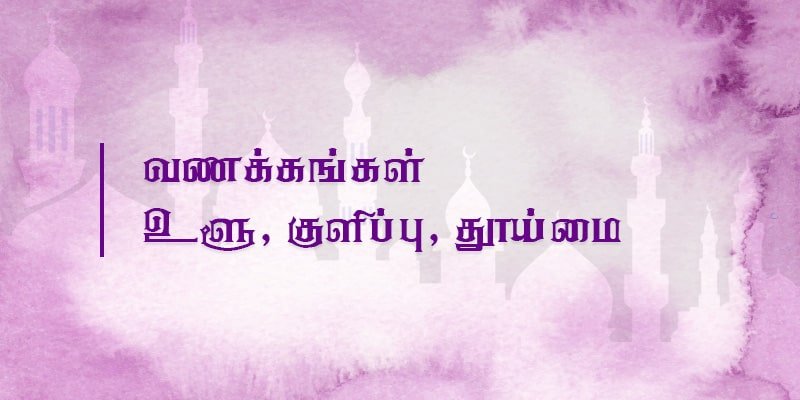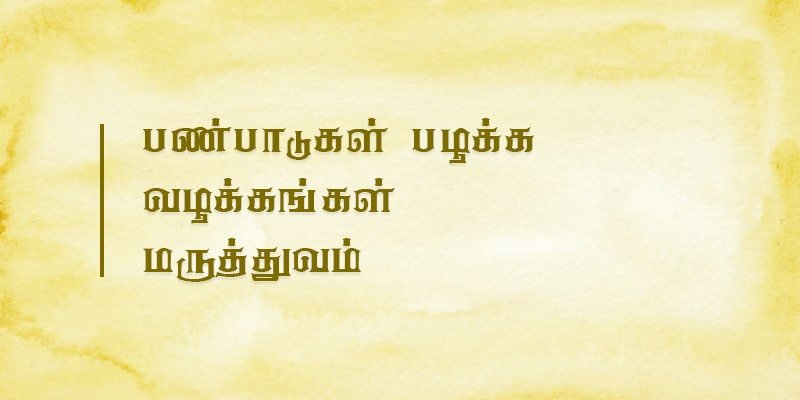361. When does the day begin?
Prophet Muhammad has explained the middle worship of the five times worship mentioned in this verse (2:238) is the (Asr) worship.
Citing this, some have started to argue the beginning of the day starts in the day time.
Their argument is:
Considering night starts after sunset, the first of the five times worship according to them is Maghrib and the middle one of the five times worship is the Fajr worship. But Prophet Muhammad has referred to the Asr time worship as the middle one of the five times worship incumbent upon every Muslim. But these people argue Asr worship can be considered as the middle one of the five times worship only if the beginning of the day starts in the morning, because according to them the day starts with the previous day's sunset.
Right from the time of Prophet Muhammad till now it has been accepted by Muslims, the beginning of the day starts with the sunset of the previous day, but these people on the basis of prophet Muhammad declaring Asr worship as the middle one of the five times worship argue, beginning of the day starts in at the Fajr worship.
Things that have been accepted without any difference of opinion are being denied by these people. They should come forward to prove beyond doubt their point of view. The cited verse does not contain the view expressed by these people. The word middle in Arabic expressed as ‘Ustha’ can be used to refer to many things with different meanings. The ‘middle’ worship of the five times worship does not refer only to the position in a number series, it also refers to the quality and specialty of an expression.
The word ‘mid’ worship in verse 2:239 of the Quran is used to refer to ‘something special’. This is made clear by the scholar Hafiz Ibn Hajr, in the book Fath Ul Baari an explanation of Bukhari hadiths, who excels in hadith explanations
Quranic verses and hadiths stand evidence to the claim of Hafiz Ibn Hajr. We come to understand from verses 68:28, 2:43, just like other words from the root word ‘al Ustha’ mean ‘in the center’ it also has a meaning ‘the best’ or the ‘specialized one’.
Night time worship was made mandatory. And after this mandatory worship, the first daytime worship was Fajr. Some scholars say, as per the series of mandatory worships ‘Asr’ falls as the ‘mid’ worship
Both these evidence do not contradict any other stances taken already there.
But the invention by these people, that ‘Maghrib’ is the starting of the day, goes against much established evidence.
There are many evidences to prove that Maghrib was considered the beginning of the day during the the time of Prophet Muhammad.
Narrates Abdullah bin Unais (RA).
We were discussing amongst ourselves who should approach Prophet Muhammad regarding the night of Lail-at-Ul Qadr. This took place in the morning of the 21st day of Ramadan, I started from here, and reached the congregation of Maghrib worship with Prophet Muhammad. I told the prophet that I was being sent by the Banu Salama clan to know about the night of the Qadr. The prophet asked me, which of the night is now. I replied, it is the 22nd night of Ramadhan.To this the prophet replied, this is that night of the Qadr. and then he returned later to say the next 23rd night is also the night of Qadr.
Book: Abu Dawood 1171.
What does this hadith convey?
Abdullah bin Unais starts from his place in the morning and joins Prophet Muhammad at the maghrib congregation worship. If the beginning of the day was was Subhu, he should have termed that day’s Maghrib as the 21st of Ramadhan, whereas he says it is the 22nd of Ramadhan,and Prophet Muhammad also endorses it. From this incident it could be understood the beginning of the day starts at the Maghrib time without doubt.
If the Maghrib that follows the 21st Subhu is called the 21st Maghrib, then the beginning of the day can be taken as Subhu. But in this hadith, it is made known through the conversation this person from the Abu Salama clan had with Prophet Muhammad, the 21st Subhu is followed by the Maghrib of the 22nd. Hence it needs to be understood that the change of the date in the Islamic calendar takes place in the Maghrib of each day.
Let’s take a look at another hadith.
It was the habit of Prophet Muhammad a in the habit of soaking palm dates in water and drink it the next day. Ibn Abbas narrates the following hadith.
We will soak the dates in water on Monday nights for Prophet Muhammad. He will drink that water on Mondays and till the Asr time on Tuesdays.
Book: Muslim 4083
This hadith talks about Prophet Muhammad drinking the dates-soaked water on Monday night and on Monday day time.
This is clear evidence to prove the beginning of the day according to the Islamic Calendar is the maghrib time. If the start of the day is Subhu it would have been mentioned in this hadith, but it has been said the daytime that follows suit a Monday night is also called Monday morning, and it remains that even after the advent of Subhu the day has not changed. It can be known from the following hadith also that the day starts from the Maghrib time.
Prophet Muhammad used to observe ithikaf during the middle ten days of the month of Ramadhan. While thus observing a particular year, on the 21st night of Ramadhan, as usual he used to exit from ithikaf in the daytime of the continuing night. He said, whoever observed ithikaf along with me may continue to observe the same also for the last ten days of the Ramadhan month. That night was pointed out to me later and made to be forgotten. I had a vision that I was made to prostrate in slush and water, hence one of the odd days in the last ten days of Ramadhan is the night of Qadr, look for it in one one of the odd nights of the last ten days of the month of Ramadhan. That night it rained and water was dripping through the thatched roof of the masjid. On the 21st day that continued from the night, I could Prophet Muhammad’s fore head covered with slush and water.
Bukhari 2027
In this hadith we find the mention of the day light morning continued from the 21st night of Ramadhan as the 21st day of Ramadhan morning. From this we understand the night of 21st of Ramadhan continues as the morning of 21st Ramadhan and not as the morning of the subsequent 22nd of Ramadhan. Hence we come to clearly know the subsequent morning of the night continuing is part of the same night and denominated as the same day, and not as the morning of the next day.
The same hadith also mentions Prophet Muhammad advised the people on the 21st night of Ramadhan, at the end of which it rained, and water dripped from the thatched roof of the masjid where worship took place, and also when slush and water was seen in the forehead of Prophet Muhammad.
This phrase mentions, because of the overnight rain on the 21st day of Ramadhan, the fore head of the prophet was seen covered with slush and water in the subsequent morning. Here we come to understand the day that follows the night of the 21st day of Ramadhan remained the 21st morning. The date (21st day of Ramadhan) continues to remain as the 21st morning without any change from the maghrib of the 21st day of Ramadhan, even after the arrival of Subuhu. This remains clear evidence to prove the day begins at maghrib of each day.
If, as per these people's contention the day begins at Subhu, this comrade of the Prophet Muhammad would have mentioned the day that born after the 21st night as the 22nd morning, but we find him mentioning it as the 21st morning. From this incident we come to clearly understand the beginning of the day is the previous night. Moreover, it needs to be taken note, the mention of Prophet Muhammad’s habit of exiting the ithikaf on that particular morning. Had there been a concept the day begins at the daybreak sunlight morning; it would have been mentioned as the prophet exited ithikaf the next morning, and not as ‘he exited ithikaf on that morning’. This proves without doubt, the day begins the previous night.
Let us look into another hadith;
Said Prophet Muhammad, every Thursday evening on Friday night, the deeds of all the descendants of Adam will be submitted to Almighty God, at that time Allah will refuse to accept the deeds of those who have broken their family relationships.
Narrator: Abu Huraira (RA)
Books: Ahmad 9883, Al Adab Ul Mufrath 61, Shuabul Ul Iman 7966
What does this hadith convey? If it was mentioned as Thursday night followed Thursday evening, it would lead to a conclusion that the day did not change from Thursday to Friday maintaining the day break as the beginning of the next day, but here we see it mentioned as Friday night.
There are numerous evidences to prove that even after the time of Prophet Muhammad and during the time of his comrades the same principle was followed.
When I visited Abu Bakr (RA), he asked me about the number of pieces of cloths were used as shroud to cover Prophet Muhammad. I replied by saying we made a shroud consisting of three pieces of immaculate white color clothes without pockets or a turban. On my reply Abu Bakr (RA) asked me as to when did Prophet Muhammad depart this world? to this I replied the prophet departed this world on a Monday. He asked me what day it was at that time? I replied it was a Monday. On my reply he said ‘I guess my death will take place by tonight,’ and started looking at the clothes he was wearing in his sick bed which had stains of saffron, and spoke asking me to remove those stains and use the same along with two other cloths to make a shroud to cover his dead body. I replied to him by asking whether he wanted me to make use of old clothes for his shroud. He replied by saying the living deserve more of new clothes than the dead, and the old clothes are more appropriately used in blood stains and puss that ooze from the dead. Later he died on Tuesday night and was interred before day break.
Narrator: Ayesha (RA)
Book: Bukhari 1384
Abu Bakr (RA) desired death on a Monday since Prophet Muhammad died on Monday, and believed he would die before night fall. But he died after nightfall, and Ayisha (RA) mentions it as Tuesday night and not Monday night.
If the night that arrives after a Monday day light is called Monday night, it can be considered as there is no change in the day till day break the next day, and a change in name takes place only during the next daybreak. But the night that arrives after daylight on Monday is mentioned as Tuesday night in this hadith, which makes us understand that immediately after sunset the day ends for Monday, and Tuesday starts its beginning.
Let’s look at another message:
Abdullah bin Masood (RA) would rise and say on Thursday evening /Friday night, ‘the best of the true words is that of the Almighty.’
Narrator: Bilat bin Isma.
Book: Dharmi 209
In this message it is conveyed, what follows Thursday evening is Friday night. (i.e) Maghrib is the time when the day passes on from one to the next. This is the principle that is being practiced since the days of comrades of Prophet Muhammad.
Ayesha (RA) narrates:
Do not undertake a journey, after you are on a Friday night till the Jumma time worship is over.
Book: Musan nab Ibn Abi.
Sahiba 5114
If it is contended the beginning of the day starts in the morning of each day, then the day that follows Friday night has to be Saturday morning, but here Ayesha (RA) mentioning Jumma worship as a criterion for not to embark on a journey until it is over, proves the continuation of the night as the day.
This message stands proof to the fact that the day does not start at Subhu.
There is numerous evidence like this to prove Maghrib is the beginning of each day.
It is better to determine the beginning of the day on the basis of facts available regarding day and date than based on the meaning of the word ‘mid time worship’ that has multiple meanings.
361. When does the day begin?
Typography
- Smaller Small Medium Big Bigger
- Default Meera Catamaran Pavana
- Reading Mode
















